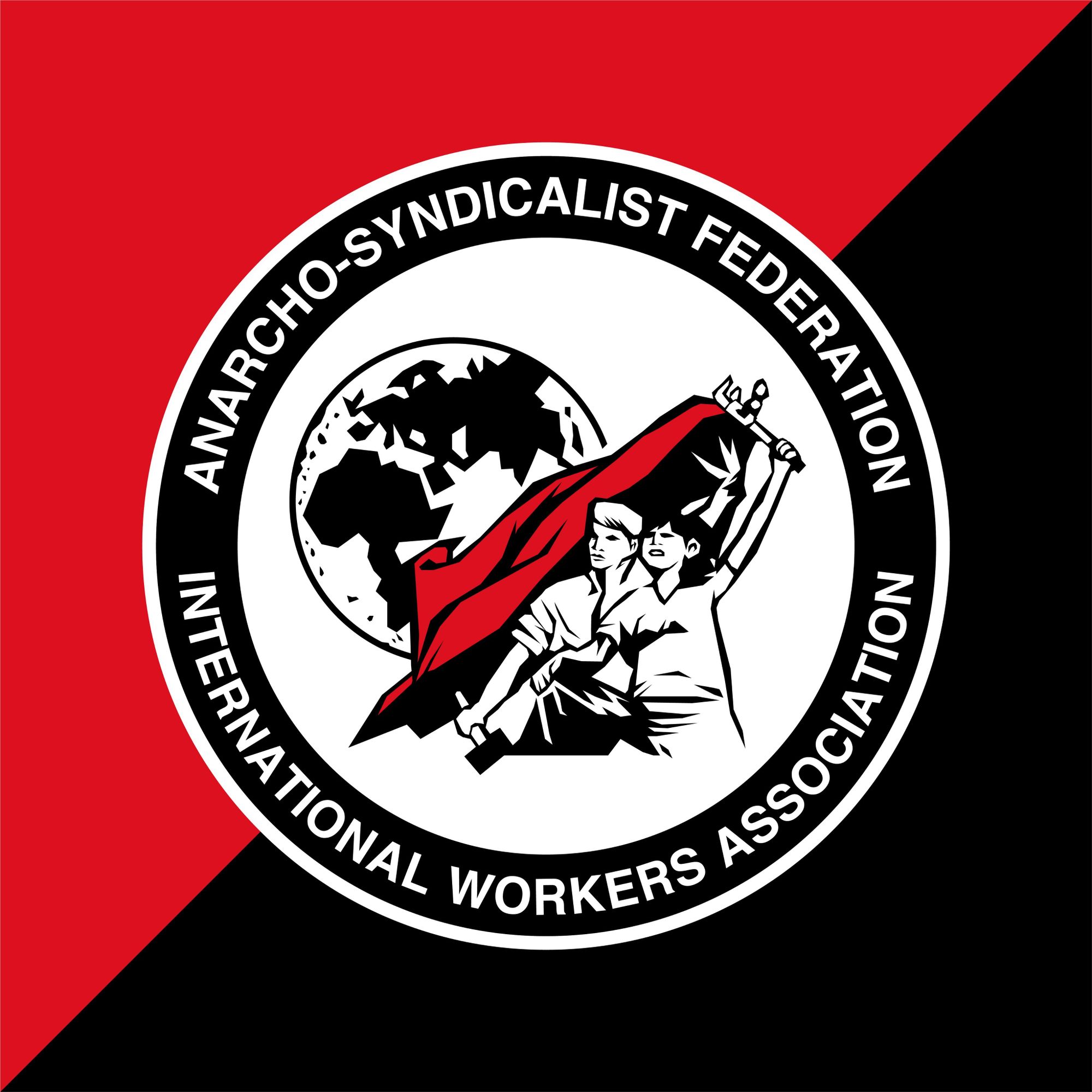This brief history covers the period from 1956 when the Sydney Anarchist Group, the first anarcho-syndicalist organisation in Australia was established. The SAG was comprised of members of the Bulgarian section of the IWA, also called 'National Confederation of Labour' and was known in English by the acronym CNT-B. Many of their members had fought against the occupying Nazis in CNT-B organised partisan groups.
The SAG set itself the goal of creating an anarcho-syndicalist union apart from and in opposition to reformist unions dependent on political parties. Their first public activity was the distribution of a leaflet at the New South Wales Trades and Labour Council organised May Day march that outlined the praxis and methodology of anarcho-syndicalism.
The SAG engaged in the work of solidarity with exiled CNT-B members around the world, particularly in France where the majority of CNT-B members sought refuge from persecution by the Soviet-backed Fatherland Front government. The SAG published the Bulgarian-language 'Our Road' until 1991. The Secretariat of the CNT-B-in-exile was moved from Paris to Sydney in 1968.
The SAG actively engaged with radicals and activists sympathetic to anarchism in the late 50s and early 60s associated with the 'Sydney Push' and founded the 'Anarchist Cellar' in Paddington in 1966 primarily as a venue for meetings and reading groups to promote the methods of anarcho-syndicalism.
Members of SAG, particularly Georg Hristov and Alex Boneff, were instrumental in organising the Anarcho-Syndicalist Conference that founded the ASF in 1986. Upon the affiliation of ASF Sydney, the SAG formally dissolved and its former members joined.
In December 1965, a group CNT exiles who had emigrated to Australia as refugees under the auspices of the United Nations High Commissioner for Refugees (UNHCR). They established themselves as a group under the name Grupo Cultural Etudios Sociales de Melbourne and had as their initial main focus of activity the solidarity and support of imprisoned CNT members.
Exile sections of the IWA in Australia 1956-1985
1956 Exile section of CNT-B (Bulgaria) established in Sydney operating under the name Sydney Anarchist Group. Our Road, the paper of the CNT-B-in-exile section in Australia, commences publication.
1965 Exile section of CNT (Spain) established in Melbourne
1966 CNT-B comrades establish the 'Anarchist Cellar' in Glenmore Rd., Paddington, NSW. Cruz Negra Anarquista (Anarchist Black Cross) established in Melbourne, commences publication of ‘Acacia’.
1968 CNT-B Secretariat moves from Paris to Sydney.
1973 ‘Acracia’ commences bilingual publication in Spanish and English.
1975 January – Federation of Australian Anarchists (FAA) established at conference in Sydney.
‘Acracia’ reverts to publishing in Spanish only.
1976 February – Sydney IWW group forms.
June – FAA disbands at conference in Melbourne.
1977 Bookshop opened at 417 King St. Newtown, NSW under the name ‘Sydney Anarcho-Syndicalists’ (later 'Jura Books').
1978 Melbourne IWW group forms.
1979 ‘Sydney Anarcho-Syndicalists’ bookshop changes name to ‘Jura Bookshop’ Members of Sydney IWW and hold meetings to discuss the establishment of an IWA section in Australia.
1981 Members of Sydney IWW publish ‘Communique No.1’ under the name ‘Anarcho-Syndicalist Committee’ declaring an intention to establish an Australian section of the IWA.
1982 February – ‘Rebel Worker’ commences publication as the paper of the IWW under the auspices of the Australia and New Zealand General Organising Committee of the IWW.
Split in Jura Bookshop leads to the establishment of Black Rose Books in Botany, NSW.
Melbourne IWW disbands.
1983 February – Sydney IWW disbands and reforms as Rebel Worker Group (RWG) and makes an application to affiliate with the IWA. Rebel Worker continues to publish as ‘An Anarcho-Syndicalist Paper’.
April – Former members of CNT and Melbourne IWW form Melbourne Anarcho-Syndicalist Group (MASG).
RWG rejects overtures by MASG to enter into discussions in regard to forming a federation.
1984 Application by RWG to affiliate as the Australian section of the IWA rejected at 17th IWA Congress held in Madrid.
1985 RWG calls for a conference of anarcho-syndicalists to be held in Sydney the following January.
ASF founded
1986 January – Anarcho-syndicalist conference agrees to found the Anarcho-Syndicalist Federation on a provisional basis with an affiliate in Sydney and an affiliate in Melbourne.
February – RWG changes its name to ASF Sydney. CNT-B-in-exile formally disbands remaining members join ASF Sydney. First meeting of ASF Melbourne held in North Fitzroy on the 15th. Rebel Worker continues to publish as ‘the Paper of the ASF’. ASF makes application to affiliate with the IWA as the Australian section.
March – ASF Melbourne establishes industrial action support project to support workers in struggle.
April – ASF Melbourne twins with Builders Labourers Federation picket line at Banana Alley/Queen St.
May – ASF Melbourne commences publication of ‘Sparks’, an anarcho-syndicalist public transport workers paper.
July – ASF Melbourne holds ‘50th Annivesary of Spanish Revolution Celebrations’ in Fitzroy. Rebel Worker goes monthly.
October – BLF dispute ends in defeat. ASF Melbourne establishes Patient Strike Support Group to support striking nurses.
November – ASF Melbourne sponsors Public Transport Workers Association as a provisional affiliate.
December – Nurses strike ends in victory.
1987 January – ASF confirmed at 1st Congress of the ASF. Public Transport Workers Association (PTWA) admitted to ASF. ‘Sparks’ continues as paper of the PTWA-ASF.
June – Rail Guards dispute PTWA and ASF-M engage in support action.
1988 January – ASF-M publishes ‘White Australia has a Black History’ as part of ASF Anti-Bicentenary Campaign.
April – ASF admitted to IWA as the Australian section of the IWA at the 18th IWA Congress held in Bordeaux, France.
June – 2nd ASF Congress held in Melbourne. ASF Melbourne South admitted.
September – Solidarity actions by IWA sections across the world in support of the struggles of the struggle of indigenous people in Australia. Spanish translation of ‘White Australia has a Black History’ published in serial form by CNT paper ‘Cenit’. Japanese translation ‘White Australia has a Black History’ published by RRU, Japanese section of IWA.
1989
History section incomplete and under construction
